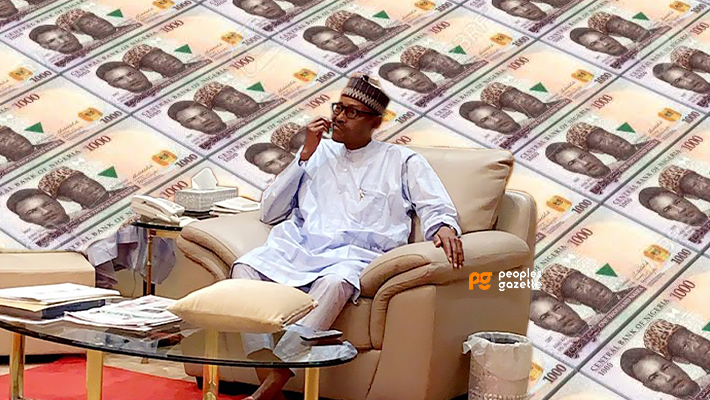-

-
Wikirise.com Advertise with Us HereStats: 4,783 members, 41,616 Posts
Number of Comments : 2,630
Date: Monday, 23rd December 2024
Nigeria needs to earn more revenue to reduce Buhari’s borrowings: DMO
By Godwin Emmanuel - August 24, 2022 | Categories: Business Tags: Nigeria
Share this post:

Patience Oniha, the Debt Management Office (DMO)’s director-general, says Nigeria needs to earn more revenue and manage its debt profile more efficiently to reduce President Muhammadu Buhari’s frequent taking of foreign loans.
According to her, a strong and comparable revenue base will reduce the need for relatively large amounts of new borrowing, as Nigeria has witnessed and will also reduce the debt service to revenue ratio.
“The World Bank’s World Economic Outlook for 2020 showed that Nigeria with a revenue to GDP ratio of 6.3 per cent was ranked at 194 out of 196 countries covered,’’ she told journalists on Wednesday.
Ms Oniha urged the Nigerian media and other stakeholders to focus more on the urgent need to improve revenue.
“Revenue is the way to go, and that is how countries develop and use borrowing to augment revenue shortfalls now and again. Nigeria has been running budget deficits for decades; it is about time to shift to a balanced budget and even surplus budgets,’’ she stressed.
She charged the regime to address the recurrent issue of petroleum subsidy payment to reduce borrowings.
“One issue to be addressed is the petrol subsidy, which has significantly increased annual budget deficits and ultimately increased the level of new borrowings and the public debt stock,” said the DMO boss. “There is a vital need to ramp up crude oil production and end crude oil theft and pipeline vandalism to meet oil revenue targets, especially in the light of rising crude oil prices.”
Ms Oniha said such steps would create an avenue for efficient tax collection and a broader tax base.
According to her, other structural issues such as insecurity, inflation, infrastructural deficit and foreign exchange shortages are adversely affecting the business environment.
Regarding her agency’s role in the debt acquisition and management processes, she stated, “The DMO plays an advisory role to the government in relation to public debt, which covers new borrowing, debt negotiation and debt management strategy.”
Ms Oniha added that Nigerians attacking the DMO over debt management did not understand the legislations and regulations governing borrowing and public debt.
“It is strongly recommended that the public is familiar with the provisions in the DMO Establishment Act, 2003 and the Fiscal Responsibility Act, 2007,” the DMO chief explained. “Public debt has grown over the last years as the government borrowed to meet major revenue shortfalls, increased spending on security and infrastructure, as well as funding on health due to the COVID-19 pandemic.”
She noted that the levels of new borrowing to meet these needs “are often captured in the annual Appropriation Acts and Medium Term External Borrowing Plan.”
She pointed out that although “it looks obvious, one of the things omitted in the analyses by experts is that new borrowing will automatically translate to higher debt stock and debt service levels.”
The cost of debt servicing has been of concern recently as Mr Buhari’s regime spent more on debt servicing in the first four months of 2022 than the revenue it collected. The debt servicing bill increased by 109 per cent between December 2021 and March 2022, rising from N429 billion to N896 billion.
According to data from the DMO, this amounts to N3.83 trillion in debt servicing payments in 15 months.
(NAN)